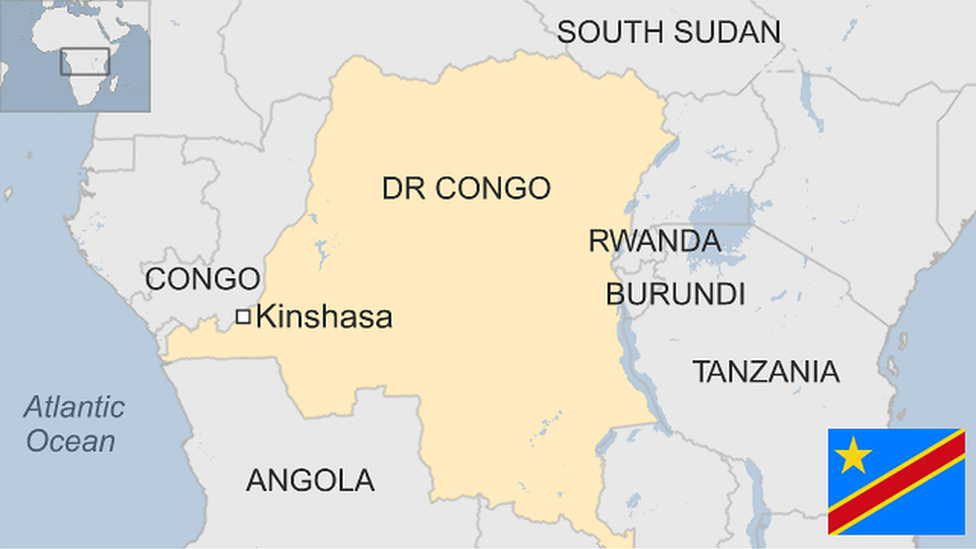DR Congo boycotts its own aid conference
- Published
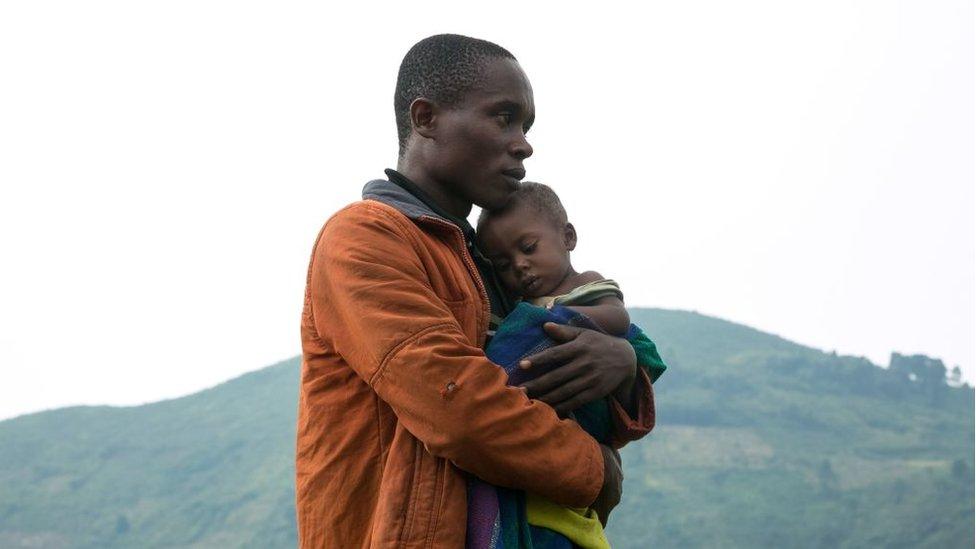
Tens of thousands of Congolese refugees have crossed the border into Uganda
The Democratic Republic of Congo has boycotted a UN donor conference in Geneva seeking to raise $1.7bn (£1.2bn) for the country.
The UN says more than 13 million Congolese need humanitarian aid, external, calling it a catastrophic humanitarian crisis.
But the government says the UN has exaggerated the scale of the problem.
Aid agencies say 4.5 million people have been forced from their homes by violence, hunger and instability.
Tens of thousands of Congolese have sought refuge in western Uganda.
DR Congo is rich in mineral and other resources but is affected by armed conflicts, corruption and a political crisis.
In response, the UN has declared that the humanitarian crisis facing the country is level three - the body's highest-level emergency.
"This is up there with Yemen and Syria in terms of number of people in desperate need," says Jan Egeland, the former head of the UN's emergency humanitarian relief office, who now leads the Norwegian Refugee Council and has just returned from a mission to DR Congo.
"I was not prepared of for the scale of the suffering, frankly," he adds.
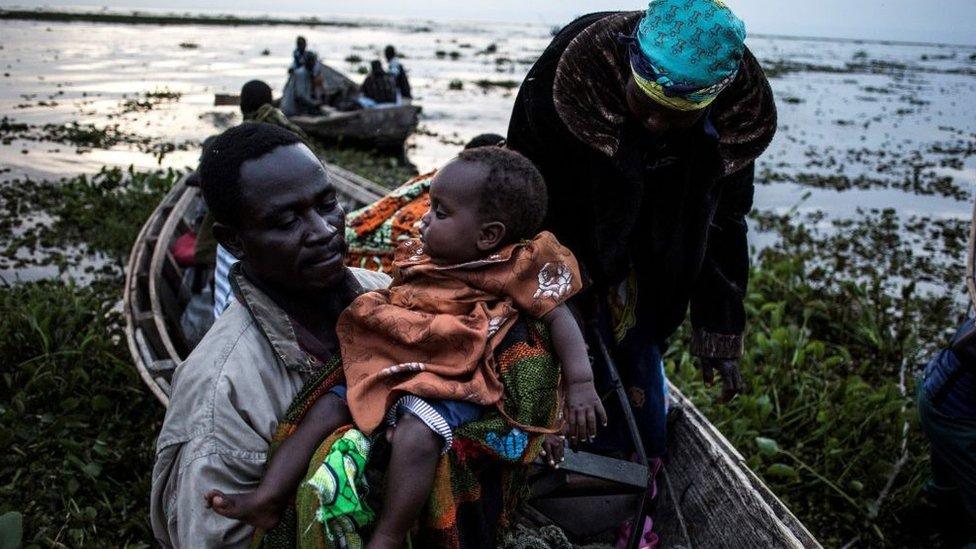
In the past two years, more people have been displaced in DR Congo than any other country
He says the international community is ignoring the crisis in DRC.
"Since the Congolese are not coming to the Mediterranean, since the Congolese are not part of a Russian-US or Saudi-Iran battle, they are being ignored really."
But the Congolese government rejects the UN's assessment of the country. It views the level three emergency rating as exaggerated.
"We have our own figures which should be compared with UN figures," DR Congo's Ambassador to the UN in Geneva, Zenon Mukongo Nga, told the BBC.
"Sometimes people are just sitting in their offices in Geneva, in New York, and they just get reports from people who are on the ground."

DR Congo's crisis in numbers
13 million people in need of humanitarian assistance
At least 4.5 million displaced
More than 7 million face severe food insecurity
Two million children at risk of starvation - 12% of cases worldwide
Source: United Nations

The BBC's Imogen Foulkes says UN officials say they still hope DR Congo's diplomats will change their minds and show up to the event in Geneva.
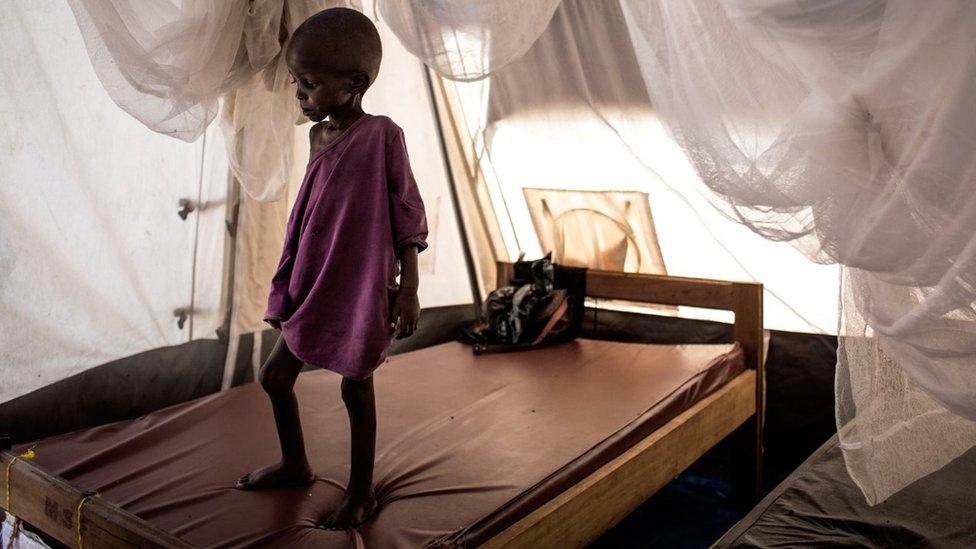
Two million children in DR Congo are at risk of starvation
President Joseph Kabila has been in power in DR Congo since 2001. His second and final term officially ended in December 2016.
Elections have been scheduled for December this year but correspondents say it is unclear if President Kabila will give way.

'Fleeing across the border' - Catherine Byaruhanga, BBC News, western Uganda
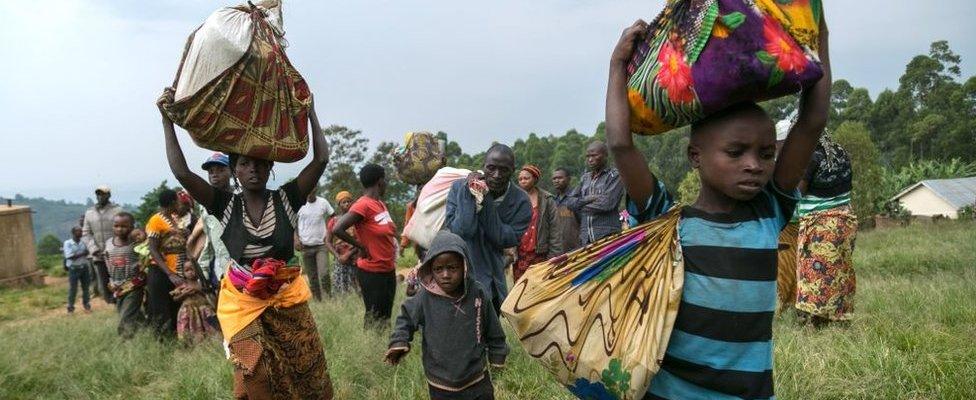
More than 40,000 Congolese refugees have been settled here at Kyangwali refugee camp since the beginning of the year.
This number of people can be quite hard to picture. As we drove to meet families the mass of white tarpaulin tents just kept on going and going.
Parents, children and grandparents can find themselves huddled in one of these small structures that they have hurriedly put up.
Finding fresh, clean water is difficult. Sanitation is not what it should be, providing an easy opportunity for diseases like cholera. The camps is now at the tail end of an outbreak that has killed more than 40 people and hospitalised 2,000 others.
The majority of the people in Kywangwali are fleeing ethnic clashes in Ituri province. Some tell me their attackers were friends and neighbours.
No one knows how many have been killed in the fighting there. It is still too dangerous to count.
And what of home? This is not the first time many are refugees. Some are giving up on the idea of going back.
- Published27 March 2018
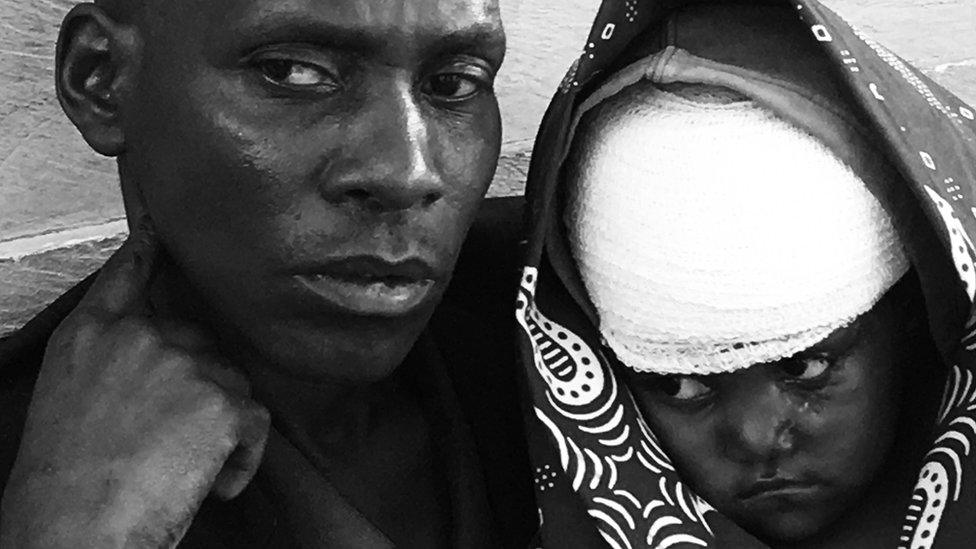
- Published12 December 2017
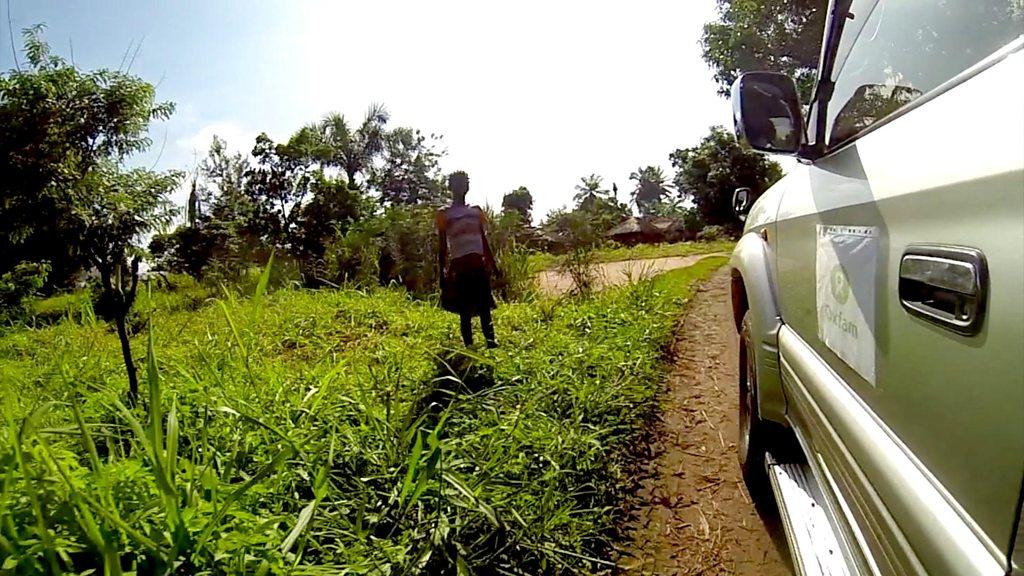
- Published14 December 2017
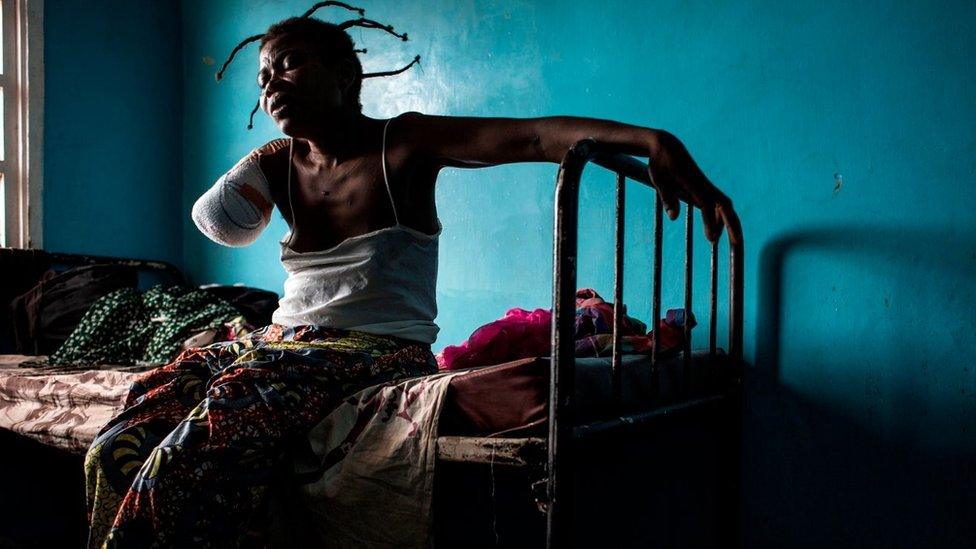
- Published31 January
